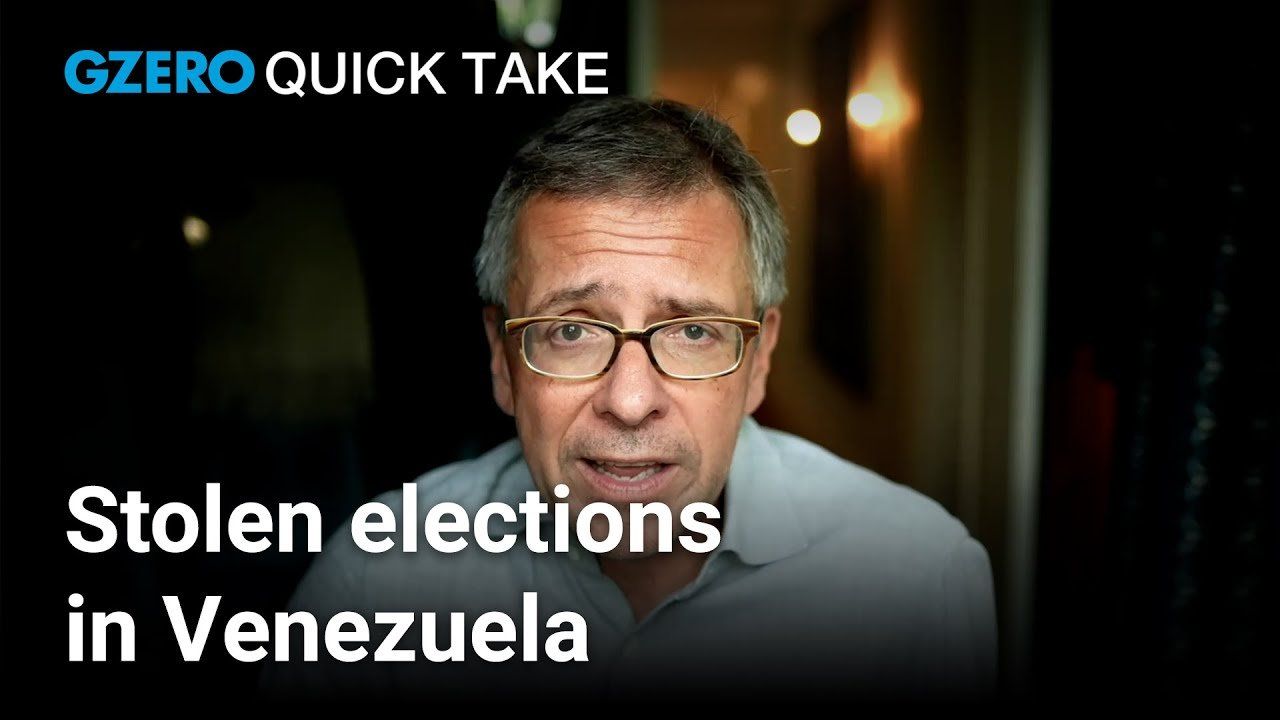
Ian Bremmer's Quick Take: A Quick Take to kick off your week. Plenty of things we could be talking about, but I want to bring up Venezuela, where we just had elections in the last 24 hours, and they were very clearly stolen by Nicolás Maduro, puts the Biden administration in a difficult spot with a clearly failed policy.
It makes US look weak and certainly makes Maduro look strong, but not the outcome anyone wanted, even though it was pretty clearly expected. So there were exit polls, credible exit polls that showed that the unified opposition candidate, Edmundo González, won with at least 60% of the vote across the country, turnout very high, despite it being very difficult to get to a lot of voting spots and clearly with those including from the military and other regime forces that were trying to intimidate people on site, you still had well over 60% of registered voters actually turning out. But it was pretty clear, Maduro saying all the way through it was going to be lots of bloodshed if he didn't win, he was able to fix the outcome that he wanted and announced a win of 51% of the vote. There are very limited details that can back up the claims that they put forward. The Venezuelan government blocked key international observers, including lots of leaders from across Latin America that were unable to either land or deplane in Caracas.
The government impeded the transmission of voting results from a number of polling stations. Over the coming weeks, we’ll clearly see all sorts of additional evidence of irregularities from the opposition testimony of polling station witnesses, paper counts from polling stations that make it clear that this was stolen. And yet, very little is going to happen for a few reasons.
First of all, because the military continues to completely support Nicolás Maduro. And that means the willingness and ability to use force to suppress and repress opposition is very high. Secondly, there have been lots of efforts to engage in anti-government protests over the last decade. And the response has been violence and incarceration. And there isn't a lot of willingness of Venezuelans to continue with that average Venezuelans.
What we've seen instead are millions of Venezuelans that have left the country, fled the country. And that's what we're going to see again. We're going to see a huge amount of emigration. Colombia, of course, is the country that gets stuck with most of it. But there are many of them trying to get to Mexico, trying to get to the United States.
More pressure on a migration policy from the United States, from Biden, from Kamala Harris, that is seen as a failure and is clearly the biggest policy vulnerability that Harris has in her election bid. Also, having said all of this, the United States has been trying to do a carrot and stick approach, saying we're going to remove and reduce sanctions, allow oil licenses if you're willing to go ahead with a free and fair election. And Maduro wants the money, wants to be able to produce more oil and said, “sure, I'll go along,” when he was completely not credible, it was obvious to everyone he was not credible. And now the Biden administration is stuck with a failed policy and yet really doesn't want to put those oil licenses into sanctions, doesn't want to take them away because he doesn't want oil prices to go higher, especially not in an election environment with high inflation.
So what is he going to do? He's going to complain. He's going to say this was a sham, that the Americans support the Venezuelan people, and he'll find some additional sanctions that don't matter as much to put on board while Venezuela and Maduro, the dictator, looks like a winner. This is, unfortunately a bad day for representative democracy, a bad day for US policy, a good day for a dictator in Venezuela.